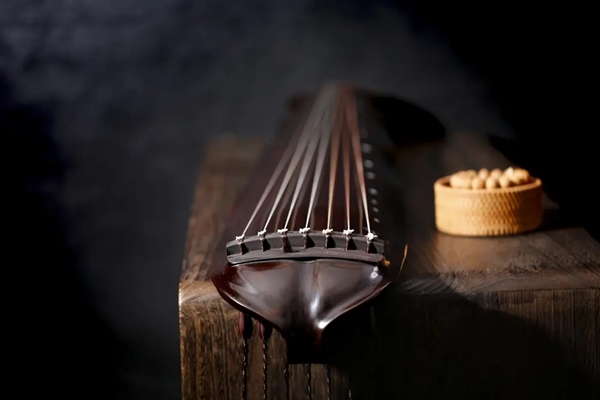Pointing to Yao Qin's Love for the Past, Wu Men Guqin Public Welfare Lecture
From "A Good Night's Guide" to "Three Stacks at the Yangguan Pass", on the morning of the 23rd, in the Huawang Residence of China Flower and Botanical Garden in Suzhou, accompanied by the sound of the ancient zither, the public lecture on the ancient zither of Wumen was opened with the theme of "The Love of the Jade zither under the Finger". Xu Yunhe, the keynote teacher, played the zither on the spot, talked about the inheritance of Wumen's zither, the origin of Suzhou's gardens and the ancient zither, etc., which attracted many citizens to listen. The "Internet celebrity fans" of ancient zither from Shandong, Guangdong and other places also came here, Live broadcast on Tiktok and other platforms to jointly experience the charm of Wu Menqin.

In front of the case, a stick of incense is lit, and the sound of the zither is ling ling. At the public benefit lecture, Xu Yunhe, the specially invited keynote teacher, was a representative inheritor of Suzhou intangible cultural heritage and a disciple of Ye Mingpei, a famous guqin master. Xu Yunhe has inherited the guqin art diligently for many years, and his guqin art is exquisite. At this lecture, Xu Yunhe vividly interpreted the time-honored Wu Menqin theory. "The ancient zither is the first of the four traditional Chinese zither, chess, calligraphy and painting arts." Xu Yunhe introduced that the guqin art, which has a history of more than 3000 years, is an important part of Chinese traditional culture. In 2003, the guqin art was included in the second batch of "representative works of human oral and intangible heritage" by UNESCO.
At the lecture, following Xu Yunhe's talk, many citizens started a "journey of inheriting Wu Men's zither learning" to appreciate the unique charm of ancient zither. Xu Yunhe introduced that Yanzi spread his zither skills in Wu during the Spring and Autumn Period. In order to promote inheritance, Wu Zhaoji, together with Ye Mingpei and other Wudi Qin masters, founded the Wumen Qin Club in 1986. Xu Yunhe recalled the "life destiny" of Ye Mingpei and Guqin art inheritance. According to him, before Ye Mingpei died at the age of 93, he was still inheriting his zither skills and teaching guqin to students.
Suzhou is a garden city, and the ancient zither has an indissoluble bond with the garden. By interpreting the origin of Suzhou gardens and guqin, Xu Yunhe tells related cultural anecdotes and shows the deep cultural connotation of guqin for fans. "I hope that more people will fall in love with guqin and inherit its art." Xu Yunhe played the zither on the spot. With the performance of the famous zither songs one by one, the faint sound of voiceless voices reached the ears, making many citizens immersed in the artistic atmosphere of the zither.
Involving musical instruments
Guess you like
Hot news
- 01 The handsome guy in 1997 is so advanced in pulling erhu! Netizen: Come and "wash your ears"
- 02 The Simple Difference Between Guqin, Se, and Guzheng
- 03 The difference between the five-stringed lute and the four-stringed lute
- 04 Dulcimer exam and performance repertoire
- 05 The difference between cymbals and cymbals in ethnic musical instruments
 渝公网安备 50010702504639号
渝公网安备 50010702504639号